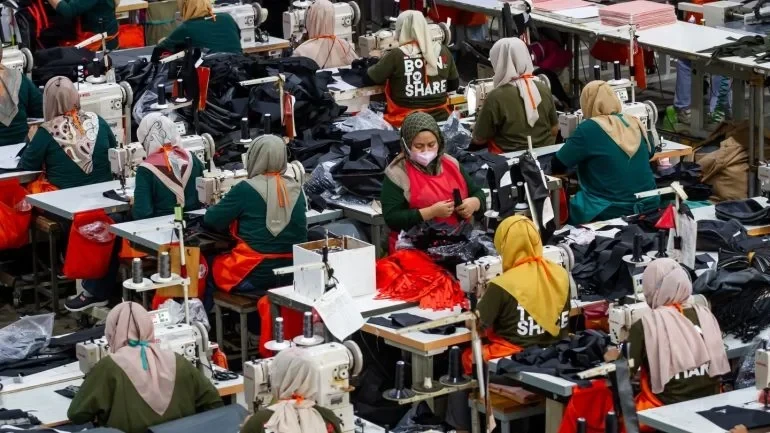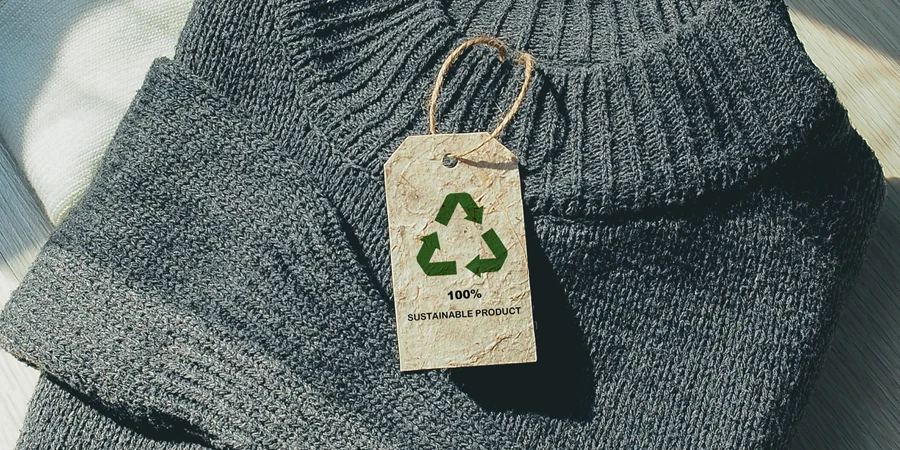Fashion brands and retailers are being warned to double down on implementing responsible purchasing practices to ensure compliance with the EU’s new Corporate Sustainability Due Diligence Directive (CSDDD).

The power imbalance between suppliers and buyers in the fashion sector is widely documented. As too are its its dangers.
Over the past few decades as consumers got used to cheap fashion, then cheaper fashion, and their appetite for the latest styles became insatiable, fashion brands and retailers – which let’s not sugarcoat it, are naturally driven by profits – looked for suppliers offering the lowest prices and that were able to deliver orders in record time.
The cycle perpetuated and where we are today is suppliers being squeezed to the point they are cutting corners in terms of worker health, safety and wellbeing to out-compete peers on price and win orders and deliver them on time so that they are paid as per terms. Late orders mean lesser pay.
Complicating matters further is consumer attention and demand for “sustainable fashion”. They want to feel good about the clothes they are purchasing and so want to know they’ve been made using sustainable fibres, fabrics and processing methods. Again, the buck stops with the supplier, expected to deliver this, usually at no extra cost.
Purchasing practices are a big deal in the new CSDDD
But purchasing practices form a big part of the new Corporate Sustainability Due Diligence Directive (CSDDD) passed on 15 March.
It will mean brands and retailers will be increasingly scrutinised on their buying practices to ensure they are responsible.
The Ethical Trade Initiative explains: “Purchasing practices are closely intertwined with national regulations and frameworks like CSDDD, underscoring the need for companies to adapt to mitigate risks and ensure compliance with existing and emerging legislation.”
The coalition of industry stakeholders focused on improving human rights in supply chains says it is essential for companies to conduct thorough analyses of their purchasing practices, to identify areas for improvement and gather feedback from suppliers.
“By examining the impact of purchasing decisions on human rights, companies can proactively minimise negative outcomes and uphold ethical standards,” the organisation says.
The legislation passes the bulk of the onus on brands and retailers and – to some degree – effectively addresses the power imbalance.
As Matthijs Crietee, STTI project lead at the International Apparel Federation (IAF), noted: “It will become harder for apparel buyers to shift the risks and costs associated with the transition to a more sustainable industry fully onto apparel manufacturers… it will create a more level playing field with better opportunities for real environment and human rights improvements.”
Can the rules be bypassed?
No. Non-compliance will result in sanctions from national administrative authorities including fines of up to 5% of their global turnover. And, according to law firm Baker McKenzie, affected parties can directly file claims against companies for damages stemming from intentional or negligent violations of their obligations to ensure effective enforcement.
Head of membership at the ETI, Kate Lewis, told Just Style exclusively: “Failure to implement responsible purchasing practices endangers workers, and risks a brand’s own supply chain, reputation, and business sustainability.”
ETI has outlined a common framework for responsible purchasing practices, aimed at guiding companies to engage with stakeholders and implement tangible improvements in their purchasing processes.
Lewis says: “Responsible purchasing practices have the potential to significantly reduce adverse human rights impacts on workers in supply chains. They can support and enable improved working conditions, the implementation of living wages, and better planning and business sustainability for all enterprises involved. Apparel brands and the workers making their clothes stand to benefit from adopting responsible purchasing practices. They will also be better placed to meet the requirements of emerging legislation, which underscores their importance, and the need for companies to mitigate risks through human rights due diligence and responsible business conduct.”
In addition, responsible purchasing practices fuel a more stable supply chain and efficiency improvements in communication, planning, policies and purchasing processes,” she says.
Peter McAllister, executive director of ETI adds: “This is an opportunity to level the playing field for companies trading in or with the EU, to make conducting human rights due diligence the norm, and improve working conditions worldwide.”
Improve purchasing practices – quick wins
Lewis says: “At ETI, we are working with company members on responsible purchasing practices across all three sectors of our membership – apparel and textiles, food and beverage and general merchandising.
“Working with partners, we have developed common frameworks on responsible business practices and established a community where companies can learn about and implement these practices collectively.
“We work with companies to progress on human rights due diligence on a continuous basis, to drive better business and bring about better outcomes for workers.
“We welcome the passing of CSDDD, its potential to level the playing field for responsible business and to make implementing human rights due diligence and responsible purchasing practices the norm, improving working conditions worldwide.”
ETI has identified three ways companies can start making improvements:
- Adopt a risk-based approach: Advocates emphasised the importance of adopting a risk-based approach, wherein companies prioritise suppliers and supply chains based on associated risks. This targeted approach enables efficient resource allocation and facilitates tailored interventions where they are most needed
- Practice and promote collaboration and transparency: Collaboration with suppliers and stakeholders emerged as a key strategy for gaining insights into the implications of purchasing practices. By engaging in dialogue and fostering transparency, companies can better understand the challenges faced by their partners and work together to find sustainable solutions. Another recurring point highlighted was the significance of sharing expectations, ensuring clear communication, through collaborative efforts, and verifying their feasibility for suppliers.
- Leverage resources and engage with experts: New research and emerging legislation has seen an exponential increase in literature and knowledge-sharing on responsible purchasing practices. There are multi-stakeholder initiatives (MSIs), like ETI, and other industry stakeholders driving progress in this area. By utlising these resources and expertise on purchasing practices companies can be better prepared to implement lasting and positive change for their business and workers in their supply chains.
Source from Just Style
Disclaimer: The information set forth above is provided by just-style.com independently of Alibaba.com. Alibaba.com makes no representation and warranties as to the quality and reliability of the seller and products.




